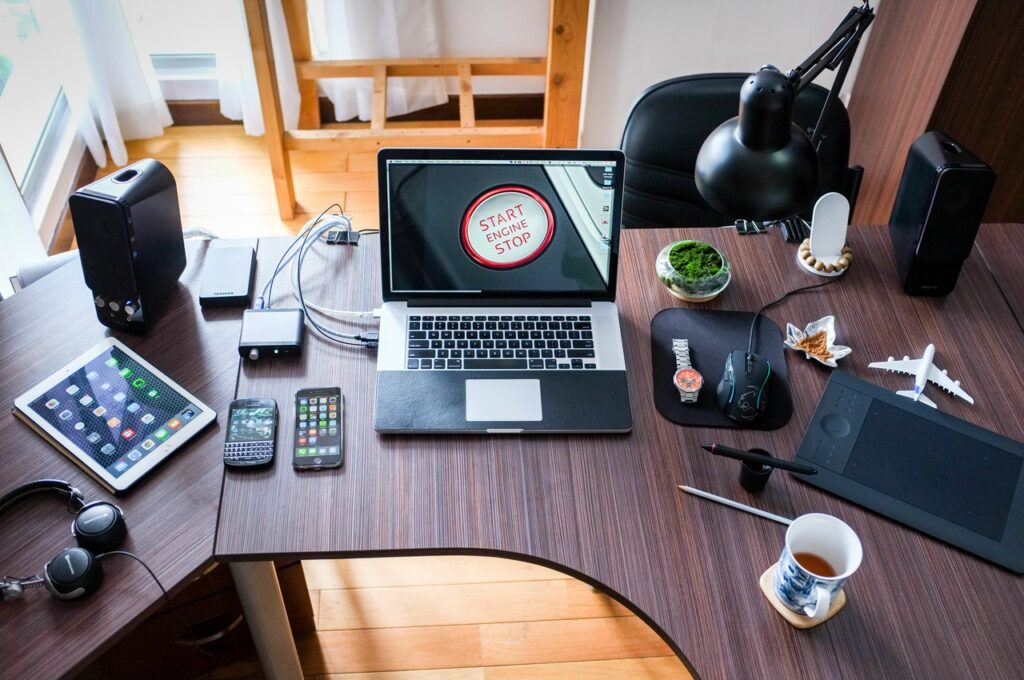How to Take Care of Your New Laptop and Ensure Its Longevity:- So, you just got your hands on a brand-new laptop. You’re wondering how to maximize your return on the investment and keep it looking and running like new for as long as possible.
Sounds about right? Here are 10 laptop care tips that will help make sure your computer stays in good shape, on the outside and inside, for years to come.
- Keep Food, Drinks, and Liquids Away
- Invest in Dedicated Cleaning Solutions
- Increase Battery Lifespan
- Let Your Laptop Breathe
- Invest in a Protective Sleeve or Bag
- Store Your Device Properly
- Keep Software Up to Date
- Remove Unused Apps and Files
- Stay Virus-Free
- Future-Proof Performance
- Why Take Care of Your Laptop?
1.Keep Food, Drinks, and Liquids Away

2.Invest in Dedicated Cleaning Solutions
It is crucial to clean your laptop regularly. Make sure to pay special attention to the keyboard, touchpad, display surface, and vents.
Below are some small investments you can make to help in keeping your laptop clean.
Get a soft microfiber cloth for your laptop screen, and always have a container of 75% rubbing alcohol handy, so you can use it as a disinfectant when wiping the screen or keyboard.
Another important purchase is an air blaster (which usually comes in a can).
Finally, invest in a small, soft brush and cotton swabs.
The key is to make sure all the products are appropriate for laptop maintenance, as using the wrong product can scratch surfaces. For instance, screen wipes will have information about suitability for computers screens on the label. Do not use typical household cleaners or dish soap. Also avoid paper towels.
Laptop cleaning kits that combine all the mentioned are available and inexpensive. You can get one at your local store or via an e-commerce platform of your choice.
3.Increase Battery Lifespan

Even the most impressive laptop battery life can deteriorate over time. It’s important to optimize the battery settings for increased longevity.
The first thing you need to know is that you should keep your laptop plugged in as long as you can. If you’re working at the desk most of the time, simply keep the power cord plugged in.
Contrary to popular belief, overcharging your laptop’s battery is not as much of an issue as you might think. ASUS makes sure that when your computer reaches full charge, the power cord simply stops providing electricity until needed again.
Your computer settings can help you optimize your system to maximize battery health. If you’re using an ASUS laptop, visit MyASUS customization options. Under Power & Performance, you can change the charging option to Battery health charging ― which is a great option for those who mostly use the laptop at their desks. This will keep your battery at 80% charge maximum.
Full charge is great when you are on the move. If you’d like to keep your battery healthy for as long as possible, however, the Battery health charging is best.
Also, if possible, never deplete your battery completely. Letting your battery drop to 0% before recharging is proven to be damaging to the battery’s health.
4.Invest in a Protective Sleeve or Bag

It is important to invest in a dedicated carrier for your laptop to help prevent damage. Plenty of solutions are available to choose from. The simplest is a laptop sleeve that can allow you to safely transport your computer in your favorite bag or hand-carry.
You can also look into buying a laptop bag. These usually come with a couple of partitions that help you carry other things, such as a power cord, mouse, earphones or dongles.
As another option, many commercially available backpacks also come with a well-padded dedicated laptop partition.
In any case, when choosing a laptop carrier, make sure there is plenty of padding. A simple neoprene sleeve may not provide enough protection. We recommend choosing a brand that specializes in computer products.
You can select something from ASUS or some other reputable brand that offers computer carriers.
5.Store Your Device Properly

Where and how you store your machine matters, particularly when it comes to sunlight exposure. Leaving your laptop near a window or inside the car on a hot day is a recipe for disaster.
If you live in a country with a humid climate, it’s good to turn on a dehumidifier in the room where you keep your computer. Water (especially salt-water, if you live near the sea) in the air can accelerate the degradation of your computer parts.
As a rule of thumb, don’t put anything on top of your laptop. It may be tempting to see the flat surface of your laptop cover as an attractive place to store your mugs, computer chargers, and other things. Aside from potential aesthetic damage, putting weight on the laptop’s cover applies pressure. This can cause deformation of the chassis or screen cracks. It can even reduce the distance between the screen surface and the keyboard, which can lead to scratches on the glass.
